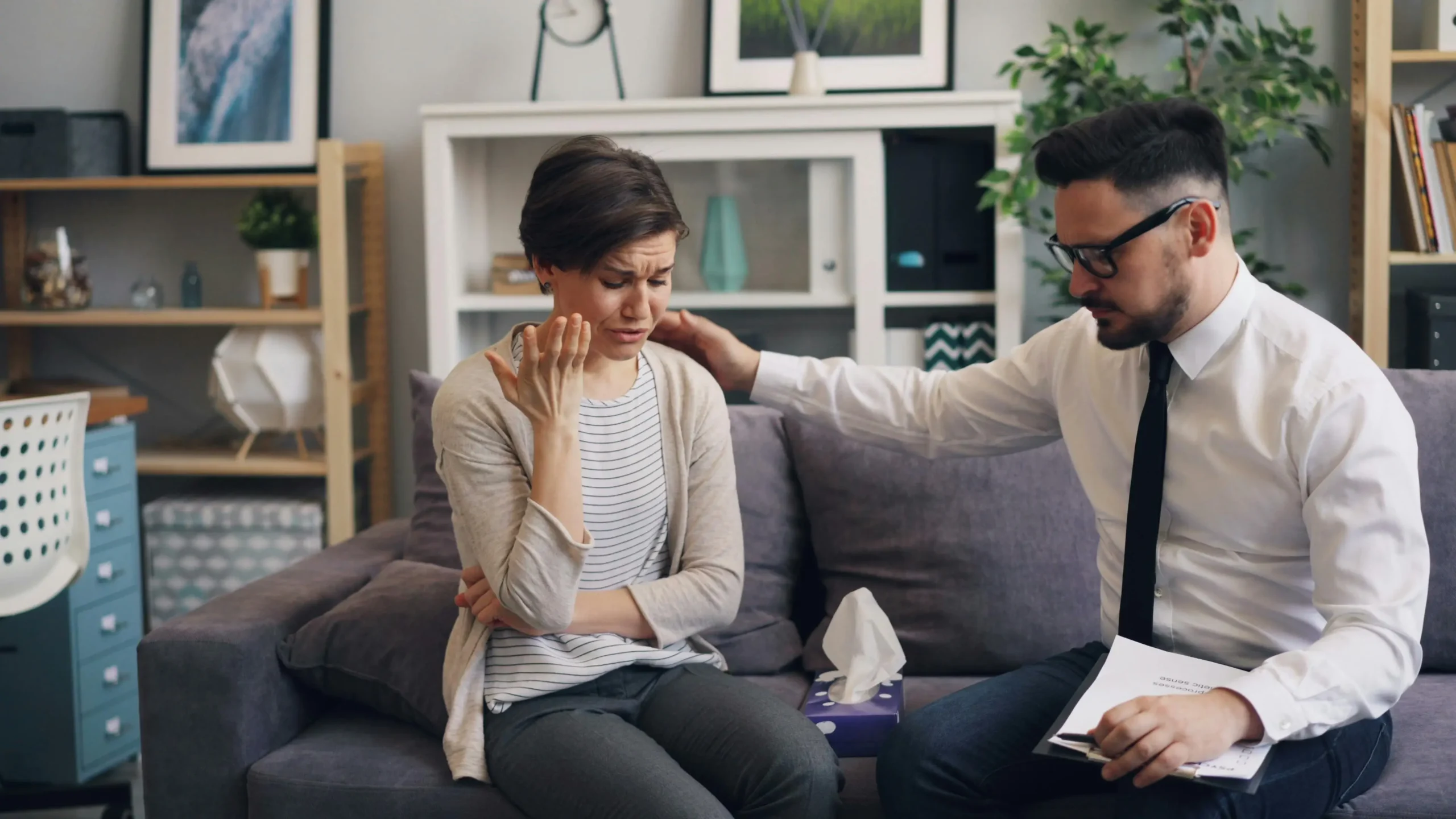Introduction: Marriage Counseling and the Fragile Promise of Forever
Marriage is often described as a journey filled with both joy and challenges. While many couples enter into marriage with high hopes and deep affection, the realities of daily life, communication hurdles, and unexpected crises can strain even the strongest relationships. This is where marriage counseling can play a crucial role. In recent decades, marriage counseling—also known as couples therapy—has emerged as a widely recognized intervention for couples facing difficulties. But the big question remains: Does marriage counseling truly save relationships, or is its effectiveness overstated? This blog explores the research, benefits, limitations, and real-world outcomes of marriage counseling to provide a nuanced answer to this important question.
What Is Marriage Counseling (And Why More Couples Are Choosing It)?
At its core, marriage counseling—also known as couples therapy—is a type of psychotherapy focused on helping partners navigate relationship challenges. Whether you’re facing chronic arguments, intimacy issues, or the emotional aftermath of infidelity, counseling provides a safe, neutral space to rebuild trust, improve communication, and reconnect.
Most sessions are guided by a licensed therapist trained in emotional dynamics and conflict resolution. They don’t take sides—they help both partners uncover what’s really going on beneath the surface. I often say, counseling doesn’t “fix” people; it equips them with tools they never learned growing up.
Depending on the therapist’s approach, you might encounter different methods:
- Cognitive Behavioral Therapy (CBT) for identifying and reframing toxic thought patterns.
- Emotionally Focused Therapy (EFT), which focuses on emotional bonding and attachment.
- The Gottman Method, which is rooted in decades of relationship research and emphasizes love maps, conflict management, and shared meaning.
Some couples seek counseling as a proactive measure—before tying the knot or early in marriage. Others wait until they’re in crisis mode. But here’s the truth: the sooner you seek help, the better your chances of success. That’s why understanding emotional triggers in long-distance relationships or otherwise can be a game-changer.
So no, therapy isn’t only for couples who are “broken.” It’s for anyone who wants to strengthen the bond and build emotional resilience before it’s too late. Source: American Psychological Association.
The Science Behind It: Does Marriage Counseling Actually Work?
1. Short- and Long-Term Effectiveness of Marriage Counseling
Let’s cut through the noise and get to the data. One of the most consistent findings in relationship psychology is that marriage counseling significantly boosts relationship satisfaction—at least in the short term.
Studies show that 38% to 58% of couples report meaningful improvement in their relationship after counseling. That’s based on self-reporting, which, while not perfect, reflects how couples feel about the changes they’re seeing. And the positive effects aren’t just fleeting—many couples maintain these improvements one to two years after therapy.
But therapy isn’t a magic wand. It works best when both partners are invested. When couples come in early and commit to doing the work, the odds of success are far higher. Unfortunately, many wait until emotional distance or resentment has deeply set in.
That’s why experts emphasize early intervention—especially for couples who frequently find themselves asking: “How to identify emotional triggers in a relationship?” These triggers, if left unexamined, are often what fuel long-term dissatisfaction.
2. What Couples and Therapists Say: Client vs. Therapist Evaluations
Interestingly, researchers also analyze how therapists view progress versus how couples feel about it. And guess what? They usually align. Therapists often track behavioral patterns, emotional responses, and willingness to change—while clients focus on how much better (or worse) the relationship feels.
When both sides agree that things have improved, it’s a strong sign the process is working. But when couples say “it’s not helping”—it often comes down to either a lack of emotional buy-in or a mismatch between therapist and couple.
This is why some people walk away saying counseling “didn’t help”—not because therapy doesn’t work, but because the couple wasn’t ready or the therapist wasn’t the right fit. And honestly? That’s a crucial part of the conversation.
3. Long-Term Outcomes and Risk of Relapse
So, what happens years after the sessions end?
A landmark study followed couples for five years post-counseling. The results:
- 48% showed significant improvement or complete recovery in relationship satisfaction.
- 38% experienced relapse or decline over time.
- 14% reported no real change at all.
These stats are sobering, but not surprising. Marriage counseling can absolutely “save” a relationship—but only when the underlying issues are dealt with honestly, and when both partners continue to apply what they learned in therapy long after the sessions end.
Think of therapy like going to the gym. You don’t get fit by going for a month and quitting. You have to keep showing up and doing the work—especially when life gets messy.
4. Why Premarital Counseling Matters More Than You Think
Here’s a fact that often gets overlooked: couples who go through premarital counseling are significantly more satisfied in their marriages. They’re also more likely to seek help early if problems arise.
Why? Because premarital counseling sets the stage. It helps couples align on expectations, understand conflict styles, and develop emotional communication skills before patterns become destructive.
I often recommend it even to couples who think they don’t “need” it. If nothing else, it introduces the idea that getting help isn’t a sign of weakness—it’s a form of emotional maintenance. It helps answer one of the most important questions in modern love: “How to manage emotional triggers in romantic relationships” before they become deal-breakers. Source: National Institute of Mental Health.

How Marriage Counseling Helps Couples (Even When Things Feel Hopeless)
If you’ve ever found yourself Googling “how to fix a broken relationship” at 2 a.m., you’re not alone. I’ve been there too. And while there’s no one-size-fits-all solution, marriage counseling can offer a lifeline—not by magically fixing everything, but by teaching couples how to relate to each other in healthier, more sustainable ways.
Let’s break down the real benefits that counseling can bring, beyond just “talking it out.”
A. Improved Communication: Learning to Speak and Hear With Love
One of the first things I realized in therapy was how poorly I listened—not because I didn’t care, but because I didn’t know how. Marriage counseling helps couples build active listening skills, teaching them to hear without immediately reacting or defending.
When a trained therapist guides you through conversations, it becomes easier to express emotions without blame or escalation. And once both partners feel heard, the tone of the entire relationship starts to shift.
In fact, identifying emotional triggers in a relationship often begins with slowing down enough to understand what your partner is really saying—not just reacting to the words on the surface.
B. Constructive Conflict Resolution: Fighting Without Destroying Each Other
Fighting is inevitable. But marriage counseling teaches you how to argue without annihilating the relationship. You learn to shift from personal attacks (“You always ignore me!”) to collaborative problem-solving (“What can we do to feel more connected?”).
This is especially powerful for couples stuck in toxic loops of blame, criticism, and shutdowns. The therapist acts like a coach, helping both partners recognize unhelpful patterns and replace them with respectful, open dialogue.
Managing emotional triggers in romantic relationships is central to this process. Once you can recognize the difference between a valid concern and an old wound being reactivated, the arguments start to feel less like war—and more like growth.
C. Rebuilding Emotional Intimacy: More Than Just Romance
Let’s be honest—intimacy isn’t just about sex. It’s about feeling safe, seen, and valued in each other’s presence. One of the most transformative outcomes of therapy is that couples start to rebuild emotional intimacy—that quiet sense of closeness that makes the relationship feel warm and secure again.
Therapy offers a space for vulnerability, where both partners can share fears, desires, and past wounds without being judged. I’ve seen couples go from barely speaking to holding hands during sessions, just because they finally felt safe enough to open up.
If you’re still asking yourself, “Why do relationships fail when we love each other?”—this is often the missing link. Love without emotional safety tends to erode over time.
D. Future-Proofing the Relationship: Skills That Last Beyond the Office
The best part? Marriage counseling doesn’t just solve current problems—it equips you for future ones. Think of it like learning to swim. Once you’ve got the basics, you’re less likely to drown during the next big wave.
You’ll walk away with tools to:
- Manage stress and conflict during life transitions (new baby, job loss, grief)
- Communicate needs without guilt or fear
- Stay emotionally connected during hard seasons
This is especially useful for couples navigating complex situations like long-distance dynamics, where understanding emotional triggers in long-distance relationships can mean the difference between drifting apart or staying strong.
When Marriage Counseling Might Not Be Enough
As powerful as it is, marriage counseling isn’t a miracle cure. There are real scenarios where even the best therapist can’t save the relationship—and that’s something we have to talk about honestly.
A. Lack of Mutual Buy-In: One Partner Can’t Carry the Weight Alone
Therapy only works when both people want it to. If one partner is fully committed and the other is emotionally checked out, the progress is slow—and often painful.
I’ve seen couples where one person was desperate for change, while the other showed up just to “get it over with.” In those cases, counseling becomes more like triage than transformation. And sadly, some couples realize that staying together means staying stuck.
B. Severity of Issues: Abuse, Addiction, or Betrayal Without Accountability
There are also situations where therapy is not only ineffective—it can be unsafe.
If the relationship includes emotional, physical, or financial abuse, therapy might actually mask deeper dangers by creating false hope. The same goes for untreated addiction or chronic dishonesty. Unless these issues are acknowledged and treated independently, couples therapy can feel like patching a sinking boat.
Sometimes, the healthiest thing you can do is walk away—and healing begins by facing hard truths.
C. Delayed Intervention: Waiting Until It’s Too Late
Many couples wait until they’re already talking to divorce lawyers before considering therapy. By then, the damage is often deep—trust is broken, and the emotional bank account is empty.
That’s why one of the most repeated warnings in this space is: Don’t wait until you’re falling apart. Just like you go to the doctor before a heart attack, counseling works best when it’s proactive—not just reactive.
This also ties into the common regret couples express later: “Why didn’t we try therapy sooner?”
D. The Wrong Therapist: Not Every Fit Is the Right One
Let’s be real—not every therapist will be a great match. Some are too passive. Others may not have experience with the issues you’re facing. If you feel judged, misunderstood, or like your therapist is picking sides, it’s okay to switch.
Therapy is personal. Finding the right guide can mean the difference between surviving a storm and sinking in it.

Busting the Most Common Myths About Marriage Counseling
Marriage counseling carries a lot of stigma and misunderstanding—and that can stop people from seeking help when they really need it. So let’s clear the air.
Myth #1: Marriage Counseling Is Only for Couples on the Brink of Divorce
False. Many of the strongest couples I know go to therapy regularly—not because they’re broken, but because they want to stay strong.
In fact, therapy techniques for emotional triggers in couples counseling are often more effective when used early, before negative patterns become ingrained.
Myth #2: The Therapist Will Take Sides
Nope. A good therapist is neutral, fair, and trained to create safety for both partners. They’re not there to label a villain—they’re there to unpack the dynamics and help each person take responsibility for their part.
The goal is clarity, not blame.
Myth #3: Success = Staying Together
Not always. Sometimes, the biggest win from therapy is realizing you’ve grown in different directions—and learning to part ways respectfully.
That doesn’t mean therapy failed. It means it worked—by helping you make empowered, conscious choices.
Real-World Results: What Couples Say About Marriage Counseling
Beyond clinical trials and statistics, the real question remains: what do actual couples say about marriage counseling? As someone who’s personally sat on that therapy couch, I can tell you the stories are as diverse as the relationships themselves.
A. High Satisfaction Rates and Emotional Relief
Many couples—especially those who come in proactively rather than in crisis—report feeling a significant boost in clarity, connection, and emotional relief after just a few sessions. In fact, studies by the American Association for Marriage and Family Therapy show that nearly 98% of clients report therapy as helpful, with over 90% feeling better equipped to handle future challenges together.
And I’ve seen it, too. Friends of mine who were on the verge of splitting said that just having a third party guide the conversation was a game-changer. It wasn’t magic—it was structure, safety, and slow rebuilding.
Even for those who eventually chose to part ways, the therapy process offered closure, reduced resentment, and helped them move on more peacefully. That alone can be worth the effort.
B. Case-by-Case Outcomes: No Guarantees, Just Possibilities
Of course, results can vary.
Some couples leave therapy feeling more empowered and hopeful than ever. Others discover that the gap between them is too wide. And then there are those who simply aren’t ready to change—even with the best therapist in the room.
Healing from emotional triggers in past relationships takes time, patience, and willingness. Not every couple has that mix at the right moment.
Still, most people agree on this: they’re glad they tried. Because even when the relationship doesn’t survive, individuals often grow—and carry those lessons into healthier futures. Source: Mayo Clinic.
Conclusion: Is Marriage Counseling Worth It? Let’s Get Real
So, after all this, you’re probably still asking:
“Is marriage counseling really worth it?”
I’ll be honest: it depends. But here’s what I’ve learned—both from research and personal experience.
A. When It Works: A Reset, a Rebuild, a Revelation
Marriage counseling is worth it when both people come in willing to show up—not just physically, but emotionally. When there’s still love under the pain, when both are ready to learn, unlearn, and grow.
It can be the reset button you didn’t know you needed. It can rebuild emotional intimacy, give you tools to manage future storms, and help you reconnect with the why of your relationship—not just what went wrong.
For those in newer relationships, premarital therapy can prevent so much heartache down the line by equipping couples with emotional tools most of us never learned growing up.
And even if you’re unsure, counseling can help you answer that nagging question: “Why are relationships hard sometimes, even when we love each other?” Just sitting with that question—together—can be transformative.
B. When It Might Not Work: Timing, Trust, or Too Much Trauma
But if one partner has already mentally checked out, or if deeper issues like addiction or abuse go unaddressed, therapy might not be enough. If both people aren’t invested, no technique will matter.
The truth is: marriage counseling is not about saving every relationship. It’s about creating a space for clarity, truth, and healing—no matter what that looks like in the end.
C. Choose Growth—Together or Apart
In the end, the goal isn’t just to stay together at all costs. The goal is a healthy, emotionally safe connection—whether that means rebuilding what you have, or letting go with love and self-respect.
If you’re still debating whether to try counseling, here’s my advice: do it for the chance at clarity. Do it for growth. Do it because your relationship—and your future—deserve that effort.
Because when done right, marriage counseling isn’t just about saving a relationship—it’s about saving the people in it.
Final Thought
Still wondering why a relationship fails or why relationships are hard? Maybe it’s time to stop searching for perfect answers and start asking better questions—together, in a safe space, with a guide who can help you find your own truth.

FAQs About Marriage Counseling
Q1. Is marriage counseling really effective?
A. Yes, when both partners are committed, marriage counseling can significantly improve communication, emotional connection, and conflict resolution.
Q2. How long does marriage counseling usually take?
A. Most couples see progress in 8–12 sessions, but duration depends on the complexity of the issues and willingness to engage.
Q3. Can marriage counseling help if only one partner is willing to attend?
A. Yes, individual therapy can still offer insights and tools, but long-term results are better when both partners participate.
Q4. Is marriage counseling only for couples in crisis?
A. No, it’s also helpful for strengthening healthy relationships and addressing small issues before they escalate.
Q5. What are the signs that marriage counseling is working?
A. Improved communication, reduced conflict, renewed emotional intimacy, and a stronger sense of teamwork are common signs.

